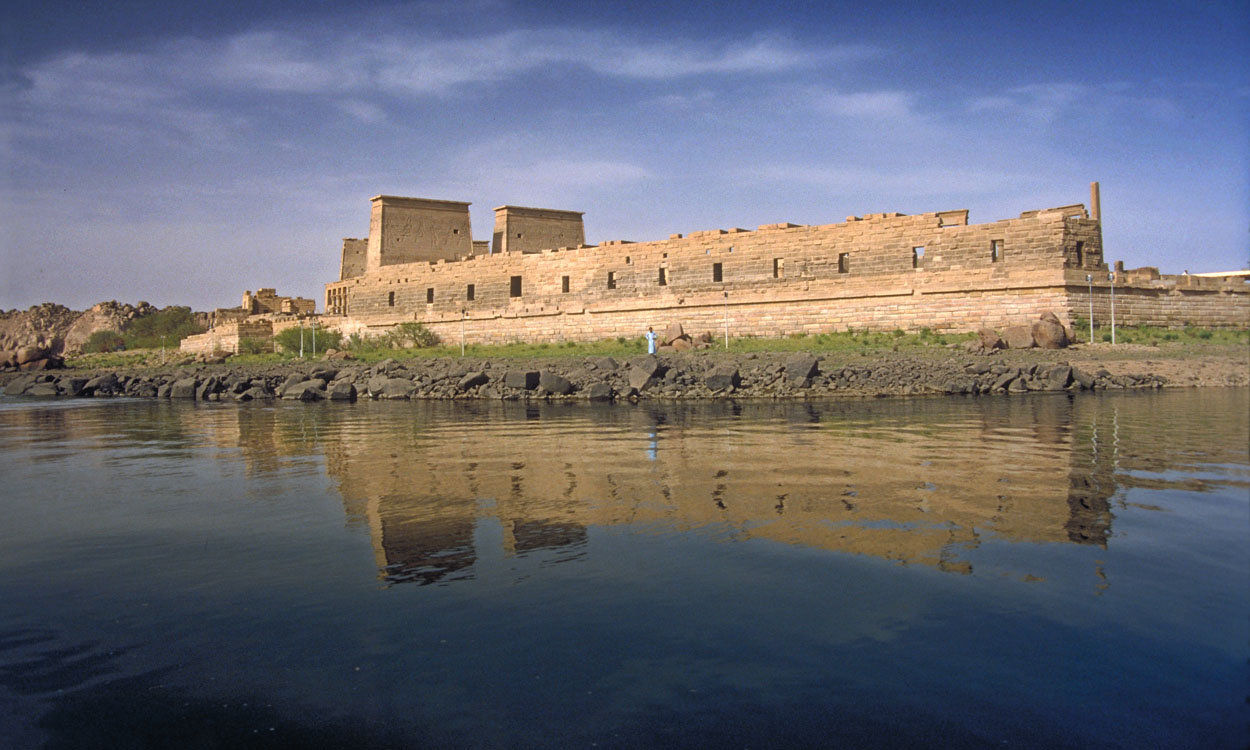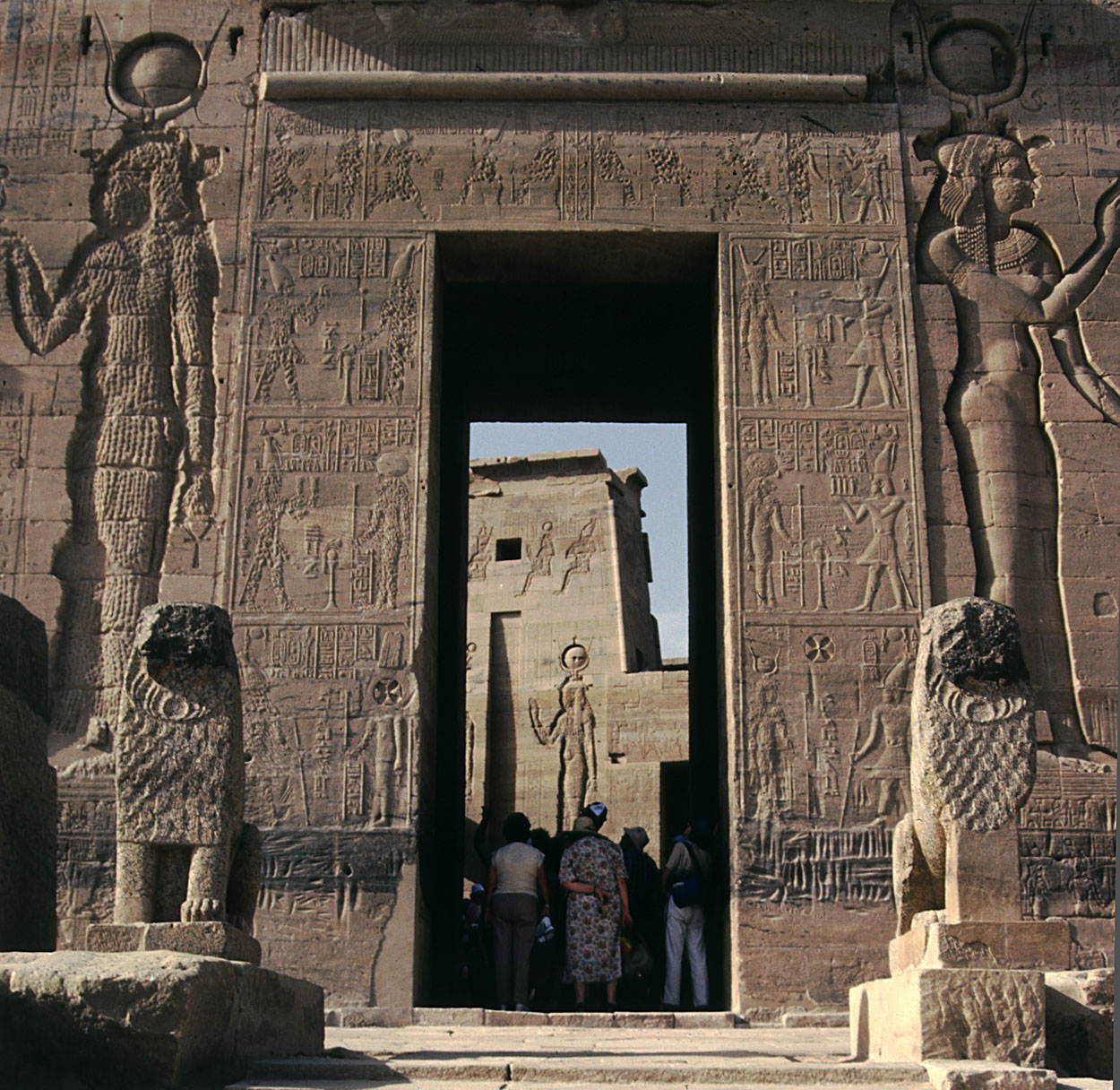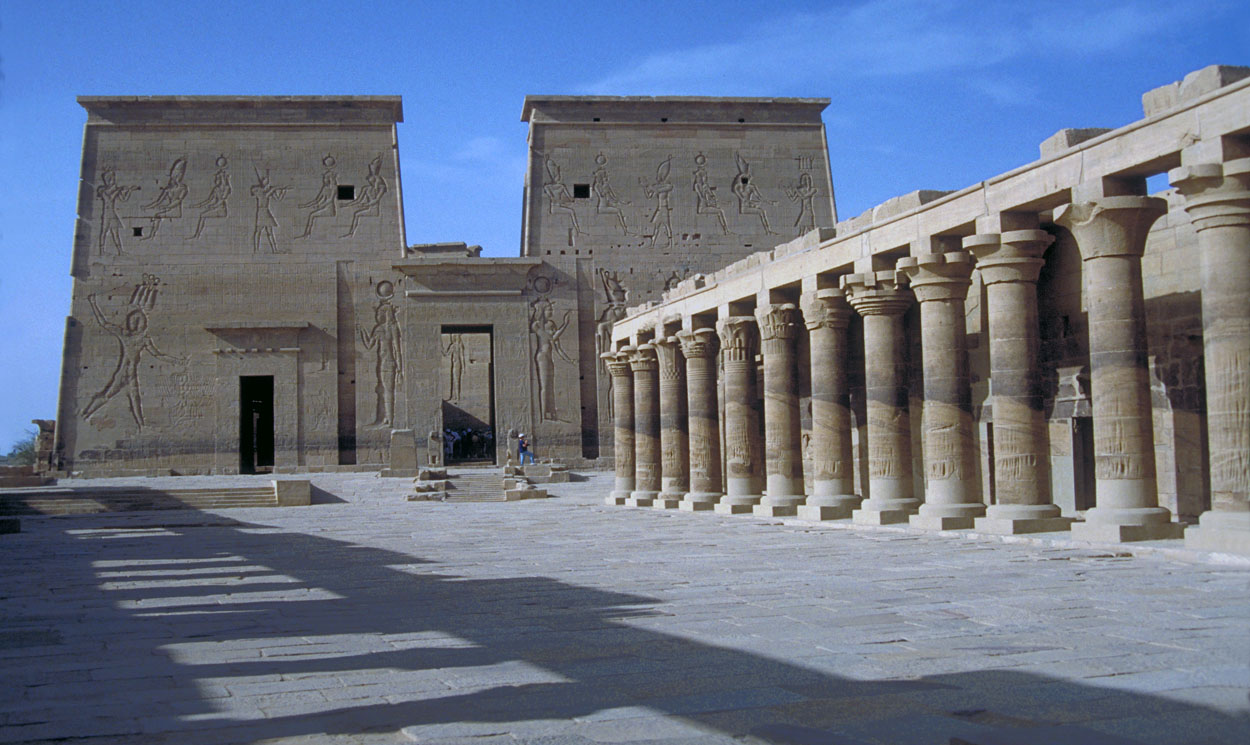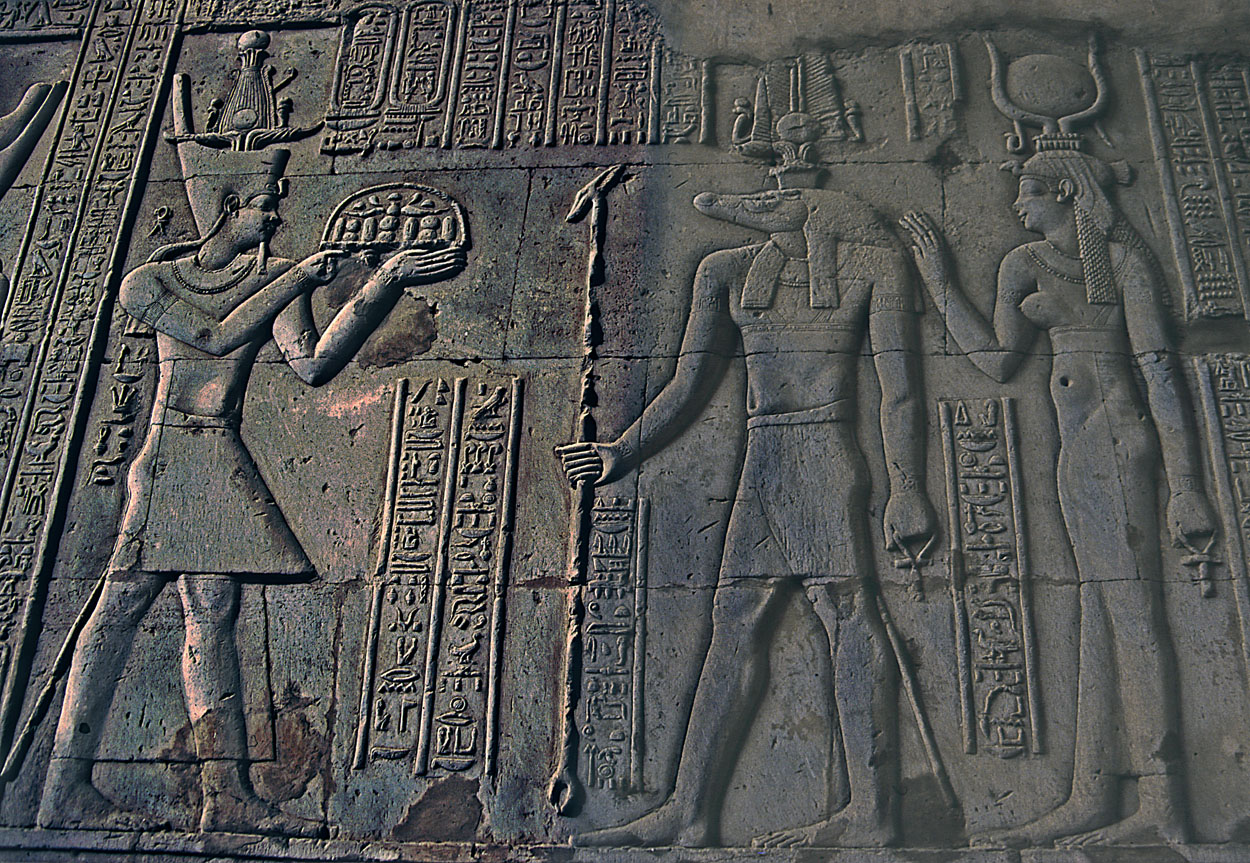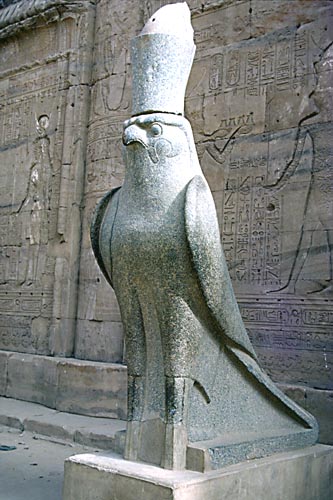|
Michael A. Stecker
Places Index Southern Nile Slide Show |
|
|
|
|
|
|
|
|
|
|
|
|
|
At the temple of Kom Ombo Pharoah offers gifts to Sobek -- the crocodile god, while Isis looks on. Sobek (He who causes to be fertile) was called the Lord of Faiyum, and was considered the god who controlled the waters. With the body of a man and head of a crocodile, he was admired and feared for his ferocity. At the command of Ra he performed tasks such as catching with a net the four sons of Horus as they emerged from the waters in a lotus bloom. Sometimes identified with Seth when Seth took the form of a crocodile. It is said that in the Osiris legends, Horus takes the form of a crocodile in order to retrieve the parts of Osiris's body that were cast into the Nile by Seth. |
|
|
|
|
|
|
